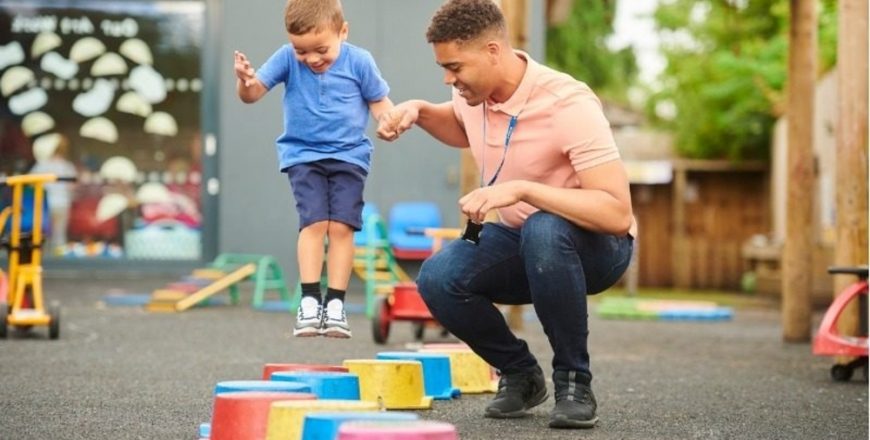
On an early years educator apprenticeship course, you’ll play a key role in ensuring that young children learn and develop well and are kept healthy and safe.
An early years educator is a highly skilled professional who ensures that young children learn and thrive in a healthy and safe environment. In this position, you will be able to work in various settings, such as full-day care, children’s centres, pre-schools, reception classes, and as a childminder.
You may work alone or supervise others to satisfy the government’s Early Years Foundation Stage (EYFS) standards for children’s learning, development, and care from birth to the age of five.
You will be responsible for organising and directing activities, aiding in the development of numeracy and linguistic skills via games and play, keeping each child safe and secure, and providing care to each kid, such as feeding, changing diapers, and administering medicine. With more expertise, you will manage an early childhood setting.
What you’ll learn
On an early years educator apprenticeship course, you’ll learn to:
- Analyse and explain how children’s learning and development may be impacted by their developmental stage and specific circumstances, such as the pressures placed on children learning English as an additional language from diverse cultures.
- Encourage non-discriminatory behaviour and fair opportunities.
- Plan and lead activities, purposeful play opportunities, and educational programmes that meet the current early education curriculum’s learning and development themes.
- Ensure that plans sufficiently reflect the child’s developmental stage, special needs, and circumstances while providing consistent care and responding quickly to the child’s requests.
- Provide learning experiences, environments, and opportunities for individuals and groups of age, stage, and need appropriate.
- Encourage participation from children while maintaining a balance of adult-led and child-initiated activities.
- Engage in effective practises, such as persistent shared thinking, to improve and broaden children’s learning and thinking.
- Encourage and encourage children’s speech, language, and communication development.
- Assist children in learning and socialising in groups.
- Model and support appropriate behaviours expected of children, such as taking turns and controlling their reactions and emotions.
- Assist children in learning how to moderate their behaviour with others.
- Plan and provide activities to meet special needs, collaborating with parents and/or caregivers and other specialists as appropriate.
- Carry out and record observational evaluations appropriately.
- Determine the needs, interests, and developmental stage of each kid.
- Discuss the children’s growth and the next stages in their education with the key person, colleagues, parents, and/or carers.
- Participate in CPD, and reflective practice to improve your skills and understanding of the issue (for example, in English, mathematics, music, history, or modern foreign languages).
- Plan and carry out physical care routines that are age, stage, and requirement appropriate for the kid.
- Encourage healthy lifestyles by encouraging babies and young children to consume nutritious and balanced meals, snacks, and beverages suitable for their age.
- Maintain accurate and consistent records and reports, and only share information when required to ensure that children’s emotional, physical, psychological, and cultural requirements are met.
- Identify and fulfil one’s responsibility for health and safety, security, information confidentiality, and safeguarding and promoting children’s welfare.
- Collaborate with coworkers and other specialists to meet the requirements of infants and children and assist them in developing.
- Collaborate with parents and/or caregivers to assist them in recognising and appreciating the significant contributions they make to their child’s health, well-being, learning, and development.
- Encourage parents and/or caregivers to be actively involved in their children’s play, learning, and development.
Entry requirements
You’ll usually need:
- Checks as per EYFS requirements to ensure suitability to work with children.
- Apprentices without level 2 English and maths will need to achieve this level before taking the end-point assessment.
- Pass enhanced background checks
Assessment methods
The End Point Assessment consists of two distinct assessment methods:
- Knowledge Test
- Professional Discussion underpinned by the Portfolio
Duration, level, subjects and potential salary upon completion
- Duration: 18 months
-
Level: 3 – Advanced Apprenticeship
- Relevant school subjects: English
- Potential salary upon completion: £22,000 per annum
Apprenticeship standard
More information about the Level 2 Early Years Educator Apprenticeship standard can be found here.
Apprenticeship end point assessment
For more information about the End Point Assessment Process, please read the Institute of Apprenticeships’ information page.
